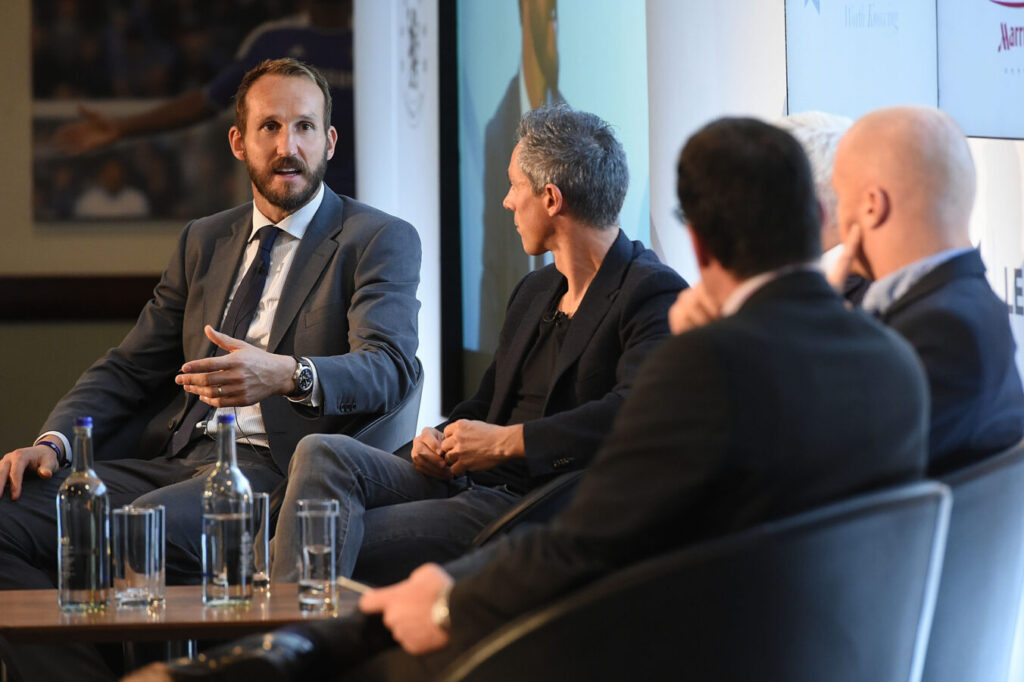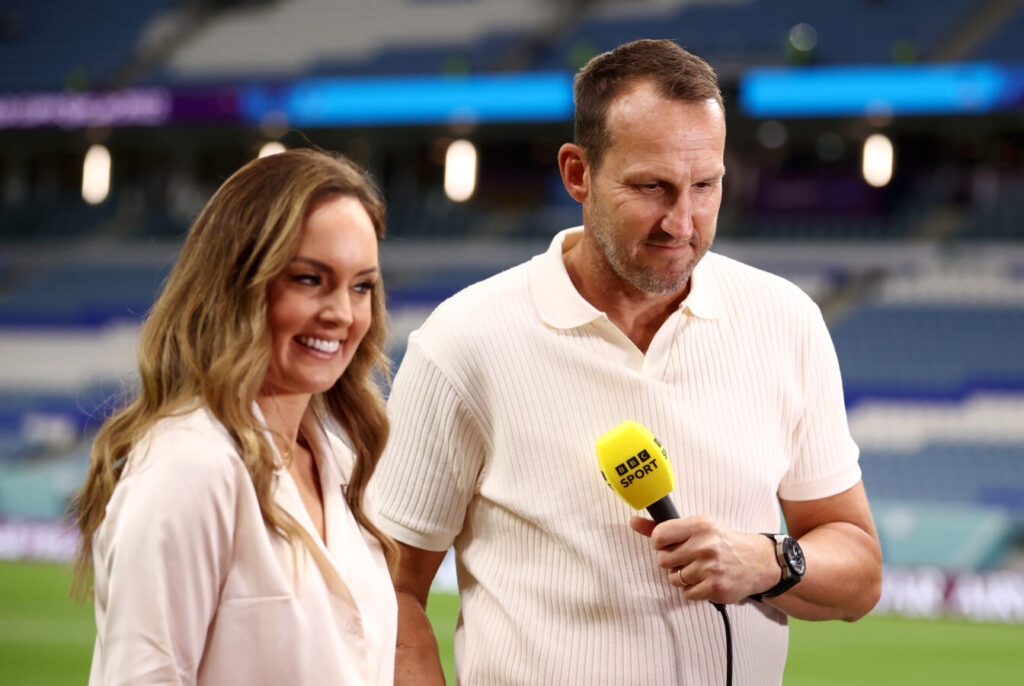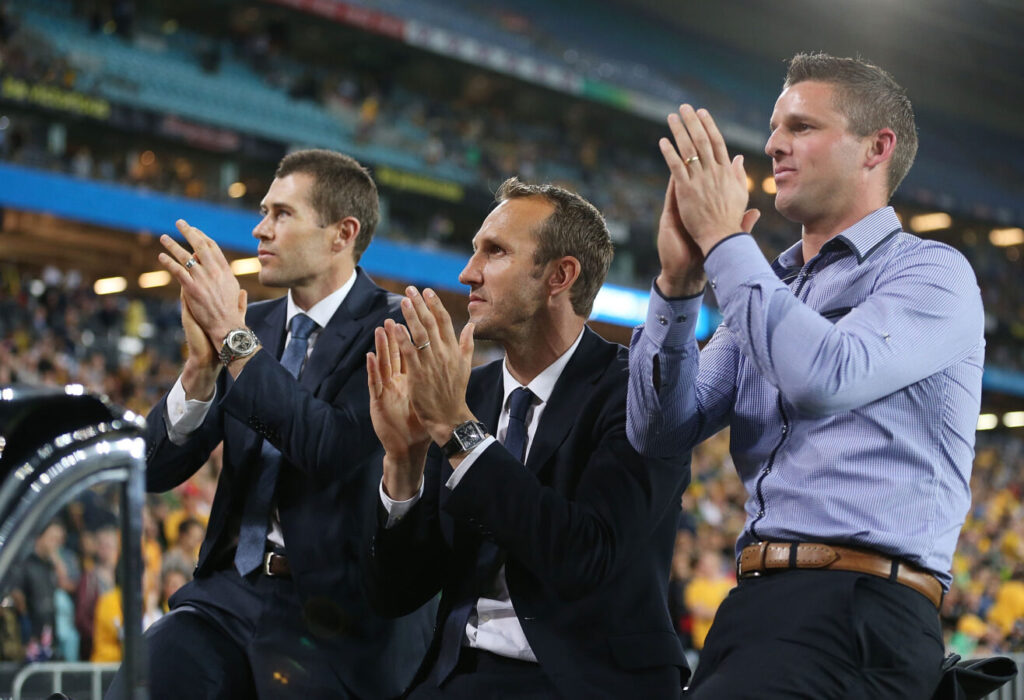PFA guest contributor Lucy Zelic chats with Australian football legend and 109-time Socceroo Mark Schwarzer about transitioning from life as a player to a pundit, and his fascinating journey in the game.
When it comes to professional sport, the subject of retirement has largely remained taboo.
As disciples of the greatest game on Earth, we are grossly consumed by the Gods that we worship on the pitch but once their chapters extend beyond the white lines, many of them are plunged into obscurity and little regard is given to the mortal that is left standing.
Alarming statistics have revealed that once players retire, many of them grapple with relationship breakdowns, mental health issues and drug or alcohol dependencies.
However, with increased awareness and reliable support mechanisms being put into place in recent years, the narrative around life after football is changing for the better.

Enter Mark Schwarzer.
Australia’s most capped Socceroo, the romantics love reflecting on the poetic night that saw the shot-stopper’s heroics contribute to Australia qualifying for their first World Cup in 32 years. The purists will proclaim that he is undoubtedly the best goalkeeper our country has ever produced, while the non-believers will concede that they too, revel and agree with all of the above.
This is the first time in my career that I’ve spoken to ‘Schwarzy’, as he’s affectionately known.
Like many, I have watched on with delight as he has carved out an insanely enviable career, received multiple awards, and cemented his legacy in the history books.
He currently holds the record for the most appearances in the Premier League by a non-Briton and after quietly transitioning from player to pundit, I was curious as to how a player of his generation in particular, navigated the next phase of his life.
What I discovered was both captivating and inspirational. I hope you enjoy reading it, just as much as I did conducting the interview.
Lucy: I want to talk about life after football. I’ve been surprised to learn that some are actually enjoying life in retirement…
Mark: I always said that we lived in a very fortunate space, but also a bit of a fantasy world playing football or professional sport in general. So when you retire, in my experience, it’s been more about this is actually when life really begins – your real life.
Tell me about your decision to retire from the national team before the 2014 FIFA World Cup. What happened?
When I did go to Chelsea, by December I hadn’t played many games at all.
Then with the national team, we played against Brazil and got absolutely hammered 6-0 – Holger (Osieck) was under a lot of pressure. Then he lost his job.
Then once Ange (Postecoglou) came in, we all knew how he played – and obviously playing out the back was never my strong point. I just knew that I wouldn’t fit necessarily.
I felt once Holger went and Ange was appointed it was like: ‘okay, I was part of that process and there’s a new page being turned and there’s a new, long-term view on this’.
When did you first start thinking about retirement? Is it something that only comes up before the natural end or is it something that starts to seep its way through your mind at various points?
I was 40 years old, so you’re going to be thinking about retirement for many years by virtue of your age. I left Fulham at the end of the 2012/13 season and I still felt more than capable. I was playing in the Premier League and I played probably some of the best football I’d played in a long time. The next move was crucial and there were a number of reasons why I made the decision to go to Chelsea.
What was the main contributing factor?
Look, it’s still really difficult to turn a club like Chelsea down no matter what age you’re at. José Mourinho was the manager, the list of players – (Frank) Lampard, (Ashley) Cole, (Branislav) Ivanović, (Didier) Drogba… I knew there was a chance I could play a part and maybe a little bit more if Petr (Cech) was getting injured true to form as he was the previous years.
Location, my kids’ age, my wife saying: ‘look, it ticks all the boxes. It’s perfect.’
I’ve always been someone who wanted to play, and I would’ve played anywhere. Keepers I’ve played with have told me one of the things they learned from me was about the desire to play every single game, and not give anyone a chance to play.
So, being in that position where I felt that I didn’t want to go, instantly I knew it was the right decision.
That’s amazing. So compare your international retirement to your career retirement – was there a sense of finality and a deeper emotion attached to that?
No, that was easier. My retirement from the national team was far more difficult – at my age, there’s no coming back, so that was the biggest and the most difficult decision to make because the national team was, and still is, the pinnacle of your career – for me and for a lot of us.
I feel for a lot of people that never got an opportunity to experience what we experienced in qualifying for a World Cup. It was the biggest moment in my career and I think for everyone who was involved on that day because that catapulted football; that catapulted us as players – our profiles. It gave football status within Australia.
Now I can almost sit back and look at it and go, ‘Jesus, that was amazing, that ride was insane.’
So when you did eventually retire from your career fully, what were some of the thoughts that went through your mind when you realised, ‘I’m not waking up every day and going to training and having that camaraderie?’
This is really interesting. I knew probably at Leicester, when we went on to win the league that season. I knew at the beginning of that season, this was most likely going to be my last season.
What really hit home for me was walking into the change rooms every day, pre-training, after training, matchdays and the first thing 98% of the people did was go on their phones and sit there in complete silence on their phones. I was just like this isn’t a change room that I know – this is now a different level. This is not me anymore.
So towards the end of your career when you were seeing that, you thought, hang on, I’m not leaving something that I’m still really loving…
No. For me, it’s when you get to a certain age, the first thing that starts to go is the distance on your kicks. You still feel like shot-stopping, all that sort of stuff is fine, but then the distance on kicks, which obviously then became a bigger thing in the game – that you notice.
I’ve never effectively said I’m retiring; ‘that’s it. I’m done.’ I left Leicester thinking, ‘okay, what am I going to do?’
Then Optus came to life and obtained the TV rights [for the Premier League]. I basically said: ‘Look, I want to get into media, but there’s opportunities potentially still to play football for one year’. They came back and said, it’s a plan over the term of the rights at the time, which was three years initially, and that’s what I signed up to.
From there on, it was just easy, once I stopped that last game of the season, that was it.

You lot are incredibly selfish but it’s almost a necessary evil in pursuit of such great success. I don’t know if you can have one without the other? Can I say how beautiful it is to hear you mention your wife and your family so often? Have you noticed that if players don’t have that strong network around them, that’s when things start to fall down?
Oh gosh, yeah. You see it. I played with a lot of other players that are bankrupt. It’s not going to change, it’s going to continue. You could talk all day about why but there are a number of reasons as to why. I’m in a more fortunate situation in some ways, in that my wife has a very good understanding of finance.
We were always of the mindset that we’re in a very, very fortunate position to earn the amount of money that we did so there was no reason to take any high risks.
Did you feel that because you didn’t ‘officially’ retire from your football career, you didn’t get the sendoff or the acknowledgement that you deserved?
No. I was invited back by the FFA (now Football Australia) to come back – myself, Jason Čulina and Brett Emerton, to one of the games at Homebush and we got a send-off before a match there, which was really nice.

A lot of the times you hear of players being selfish. Then when you look at players that do stay long periods of time, there are some clubs that do it really well but not many. More often than not, the clubs that say they’re a real family, really close-knit and everything else are pretty much the worst at it.
I spent nearly 12 years at Middlesborough. Gareth Southgate wrote me a handwritten letter when I left and sent it to me, which was really nice. But, the club itself took, I think three months before they even acknowledged that I’d left and said anything.
My gosh, that’s appalling Mark. You mentioned earlier about the feeling of ecstasy and joy that you experienced playing for the national team. Have you been able to replicate those feelings in the real world and transfer it from a football field into your everyday life?
No, but I don’t want to. I get enjoyment out of life. I get enjoyment out of the things that I do now – not the same as what I had playing football because I don’t think it’s possible. I don’t actually want to try and look for that because that is very special and that’s a moment in my life that I don’t ever want to overshadow.
I don’t want to have the emotions confused – I don’t think you can compare it. Playing over a hundred times for my country and playing at two World Cups, being part of that team that qualified in 2005 – I don’t know how you replicate that.
I play golf now – I love golf. I go skiing a lot. My wife has been skiing since she was 12 years old and I only skied for the first time in 2016, so I’m playing catch up, but I love it.
It’s really refreshing to hear that because as the statistics have shown us, it’s not always easy for players to transition once their careers come to an end. I’ve heard a range of answers to that and many talk about how they’re finding that rush and enjoyment again after becoming a parent or taking up a new hobby…
They’re happy that they’ve found something that gives them a lot of joy and I think that’s the key. Rather than looking for something to give you the same enjoyment, the same rush.
I also think those who are seeking it, more often than not, they’re not in a good place. I think they try and get back to the time when they were at their happiest and look for that rush to get them back to that place but I think it’s impossible to go there.
More often than not, players will say ‘This is my last season’ – that’s when the engagement should be starting. People and the PFA should be going: ‘What’s your idea? What’s your plan? This is what we offer, these are the opportunities, we’ve got this help.’ That’s how I envision a PFA operating and doing some good stuff.







